- Common Amazon Scam Texts
- Signs of Amazon Text Message Scams
- Other Types of Amazon Scams
- How to Report Amazon Phishing Texts
- Frequently Asked Questions
There are several different versions of Amazon scam messages being circulated. They're nothing new—scammers have been sending text messages that look like they're being sent from Amazon for years. These Amazon scams have the potential to end in disaster—from having your Amazon account hacked or compromised to getting your identity stolen.

- Financial Fraud Protection
- Identity Theft Protection
- Family Protection & VPN
Most of these text messages include a link to a phishing website where you'll be asked for your personal and financial information. Other text messages will give you a phone number that will connect you with a scammer, not Amazon. Here are some of the most common versions of these scam texts and how to protect yourself and your accounts.
Common Amazon Scam Texts
There are several different versions of fake Amazon texts being sent to subscribers, and this is by no means an exhaustive list. However, these examples will give you a good idea of how these scams work and how to identify an actual text message from a fake one.
Unauthorized Purchase
You may receive a text message that confirms the purchase of an expensive item, such as a new iPhone or Sony TV. It will direct you to call a phone number to cancel and request a refund.
This scam works because you're tricked into thinking your credit card has been charged hundreds of dollars without your consent. So, in a rush to reverse the charges, you call the number. The person who picks up will pretend to be an Amazon representative; however, they are not.
The person you're speaking to is a scammer who will ask for your sensitive information to cancel the transaction. This can include your Amazon username and password (including the two-step verification number), credit card number, and more.
Raffles and Giveaways
Another tactic scammers use is to make you think you've won a prize or giveaway. You immediately click the suspicious link to claim your winnings—after all, who doesn't love a freebie? Unfortunately, instead of landing on a legitimate Amazon domain, the link takes you to a phishing website designed to steal your information.
Amazon Rewards Credit Text Message
Don't click on the link if you receive a text message reminding you to claim your Amazon Rewards credit. The only Amazon "rewards" are points you earn when using your Amazon Rewards card.
If you don't have an Amazon Rewards credit card, you'll immediately know this is a scam. If you do have this card, log into your credit card account directly from the Chase website or app—do not click the link.
If you have rewards points to be used, you'll see the balance in your account information.
This text message is another attempt by those impersonating Amazon's brand to gain access to your accounts and steal your personal information.
Compromised Data or Account
Some texts use fear tactics to get you to make a phone call or click on a link. The scammers bank on you acting quickly (without researching to see if the text is legitimate) because you don't want anyone else accessing your account or getting locked out of it.
As with other impersonation scams, these fake text messages are an attempt to steal your information and/or access your Amazon account.
Amazon OTP Text Scam
Amazon OTP texts are legitimate. They include a number that is either used as two-step verification (2SV) if you're logging into your account from an unknown device or as a code to provide your delivery driver for high-value items.
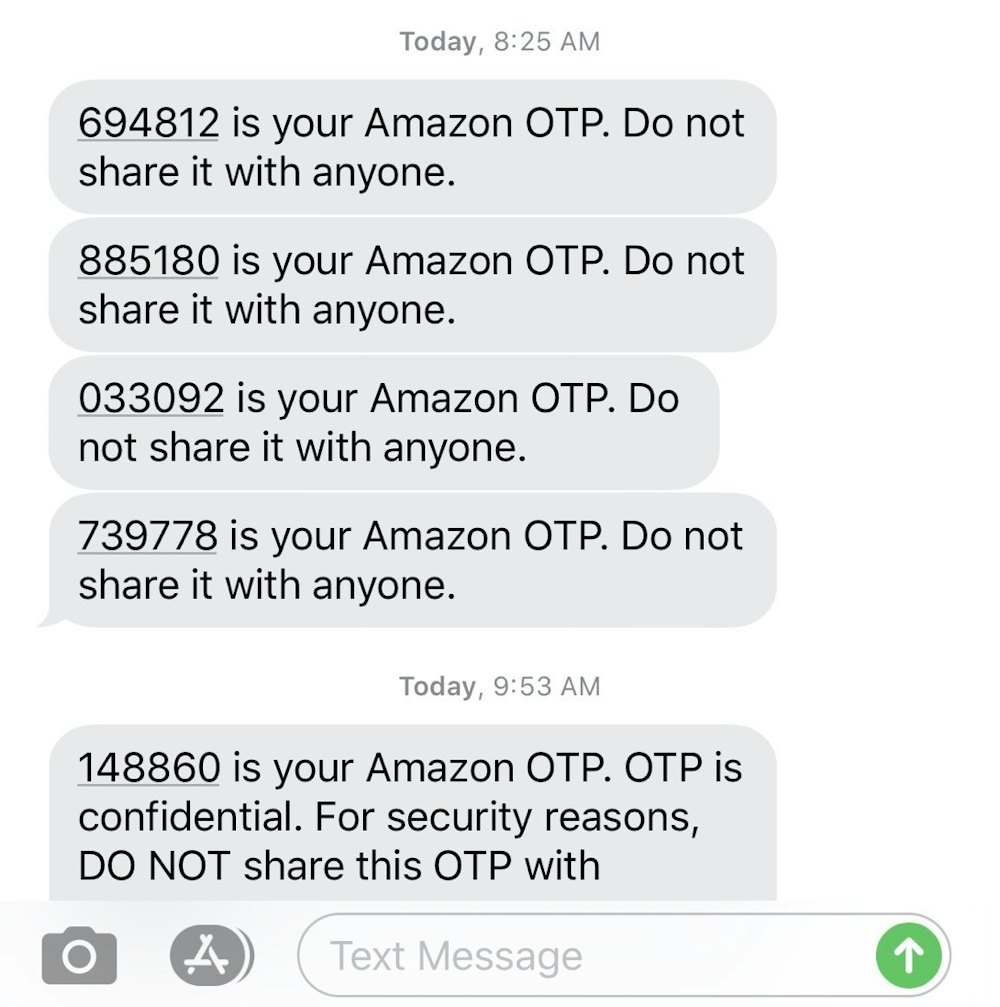
If you receive one of these texts out of the blue, this could signal that your Amazon account has been compromised. Log into your account directly from the Amazon website or via the app and change your password immediately.
Also, check your order history to ensure no unauthorized purchases have been made.
Don't ever give anyone your OTP (except your delivery driver to verify you're the recipient) or 2SV code.
Signs of Amazon Text Message Scams
- Links that don't take you to the official Amazon website
- Official Amazon links in text messages may include those starting with https://amazon.com/ or https://a.co/
- Spelling and grammatical errors
- Requests for personal information or payment information
- Threats to cancel or suspend your Amazon account
Other Types of Amazon Scams
Amazon scams don't just happen via text and sketchy links. You may also receive correspondence from Amazon impersonators by email and phone call.
These scams have the same goal—to steal your personal information or access your account. There is a long list of these scams to be aware of, and new versions are popping up all the time.
The best thing to do to keep your information and money safe is to stay aware of the scams circulating and not trust everything you receive.
How to Report Amazon Phishing Texts
If you fall for a fake Amazon text message and ultimately give the scammer your information, you should:
- Log into your Amazon account and change your password.
- Report the scam to Amazon
- Report the scam to the authorities, such as the Federal Trade Commission (FTC), the Better Business Bureau (BBB), and your local police.
- Place a fraud alert on your credit report or freeze your credit entirely if you think your identity is compromised.
- This is especially important if you gave the scammer your Social Security number (SSN).
- Monitor your Amazon account for any unauthorized purchases.
- Monitor your credit card and bank account regularly for unauthorized transactions and suspicious activity.
Amazon
Contact page: https://www.amazon.com/gp/help/contact-us/general-questions.html?skip=true
It's important to verify links and contact details to beat imposters.


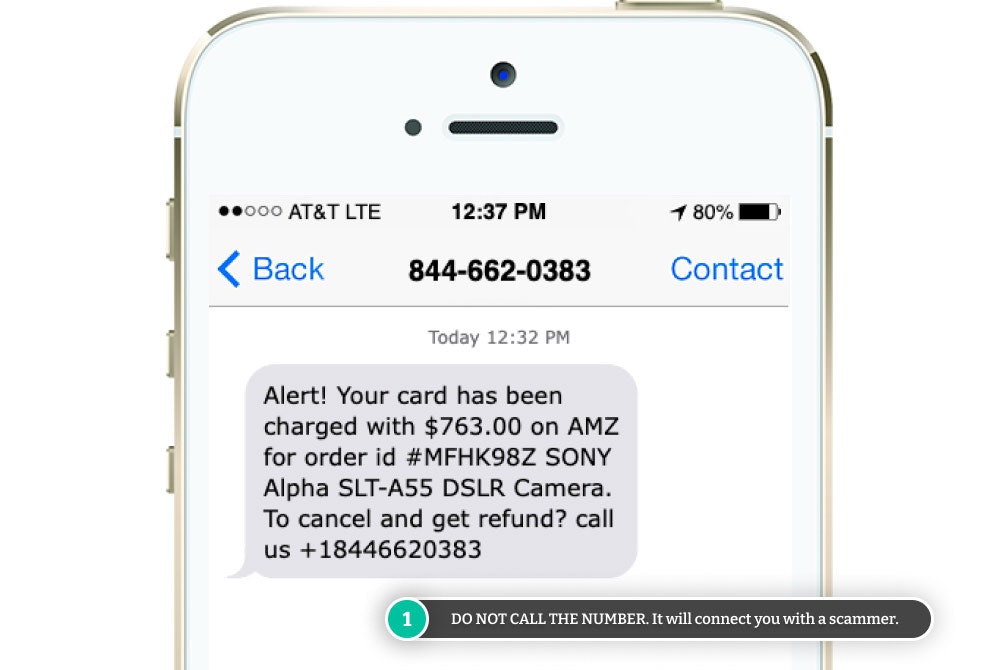
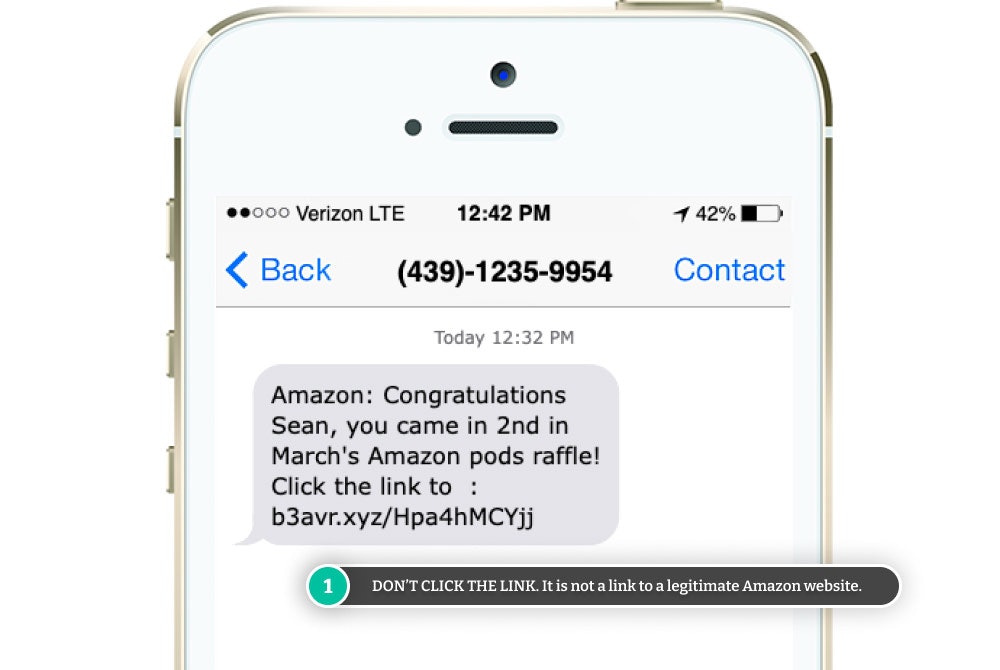
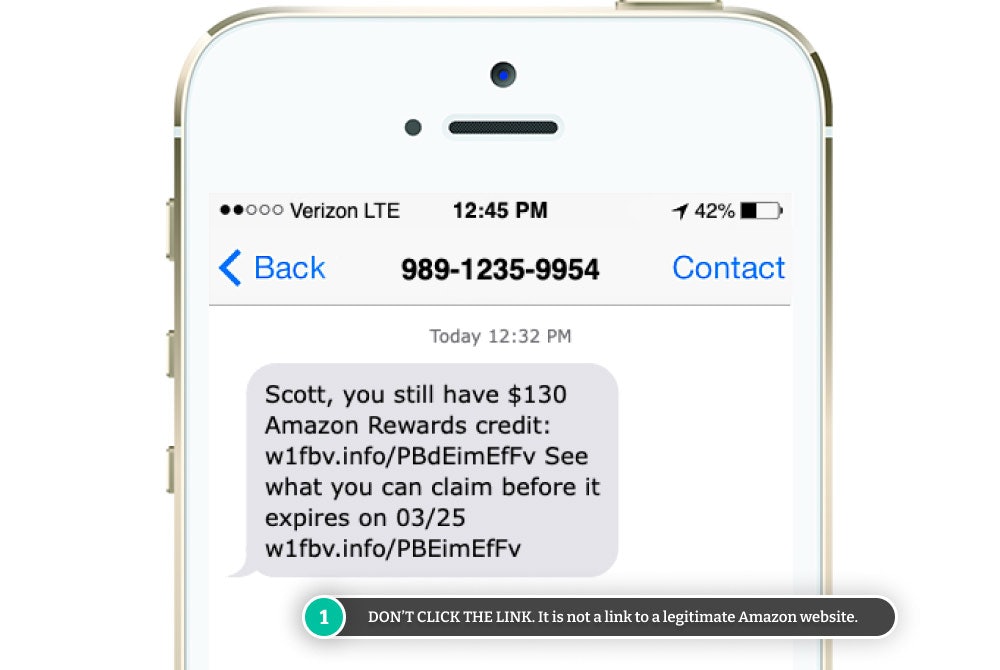
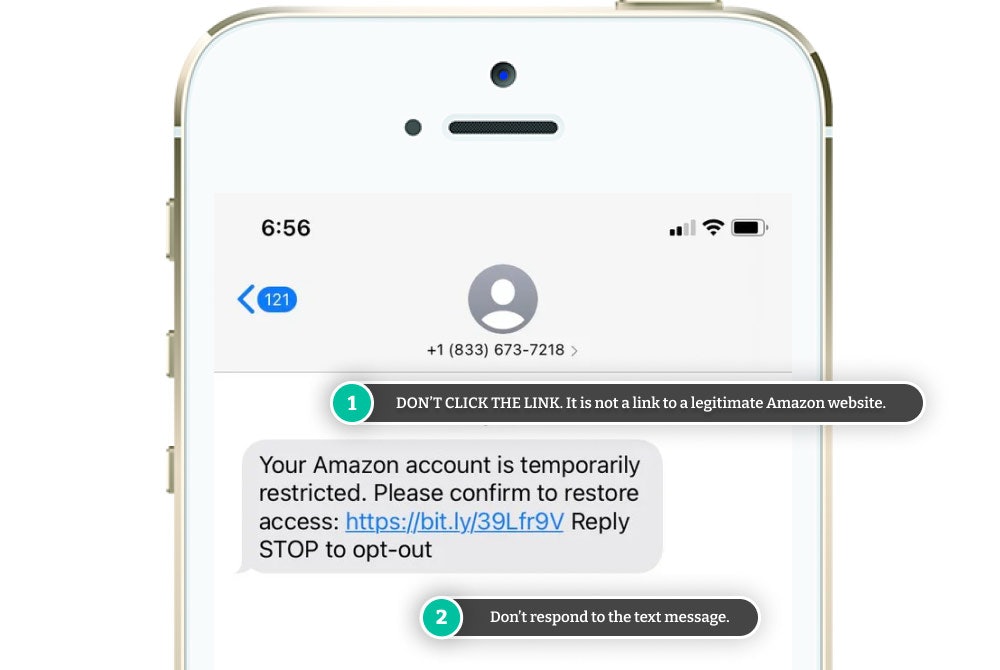
Comments